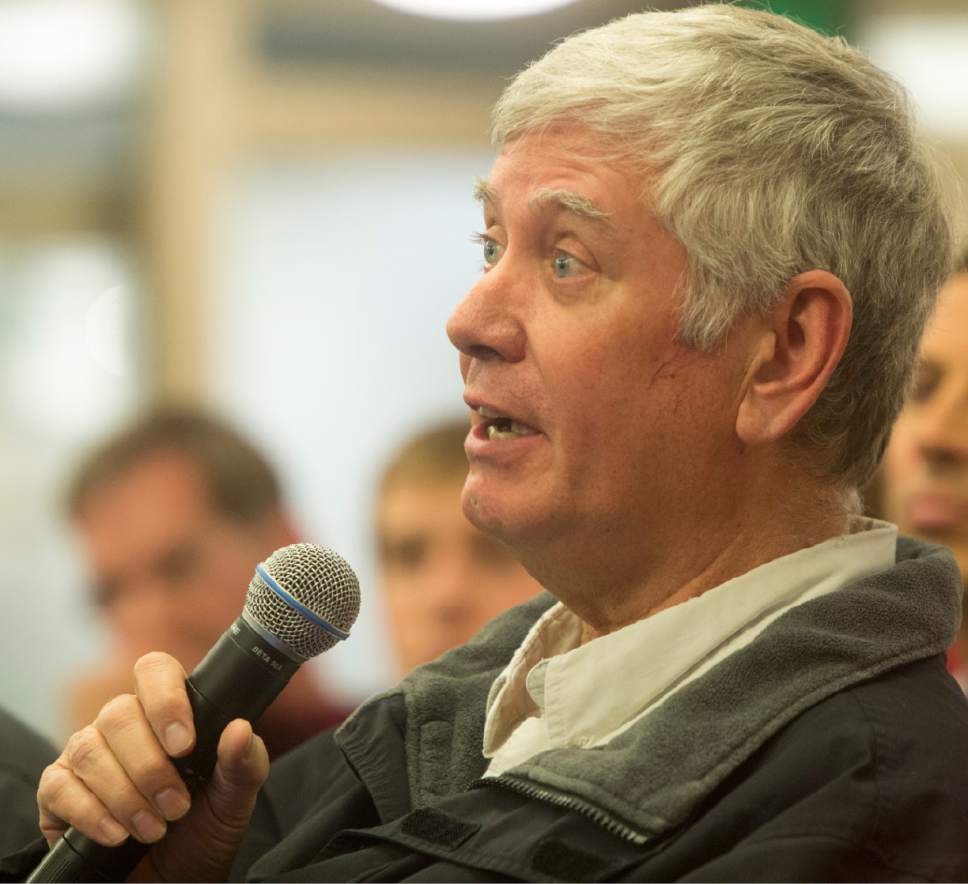This is an archived article that was published on sltrib.com in 2016, and information in the article may be outdated. It is provided only for personal research purposes and may not be reprinted.
Amid renewed controversy over secretive meetings, a watchdog group is calling for the Utah Transit Authority board to be elected by voters and not appointed by state and local groups.
That call was made Wednesday by the Utah Transit Riders Union, a group of UTA riders that keeps close watch on the agency and especially pushes for expanded and more frequent service.
"We believe that elected officials are less secretive because they have to answer to the public," said George Chapman, a transit-riders union board member.
The riders union issued a statement saying, "We do not believe that a board filled with political appointees does anything to serve the public interest."
It added, "UTA's mission is critical to the well-being of our state, and its success rests in having a vibrant and responsive and elected board."
The current 16-member UTA board is appointed by a wide range of entities.
One appointment each is made by the governor, House speaker and Senate president.
Salt Lake City appoints one member. Mayors in other cities in Salt Lake and Tooele counties jointly appoint five members. Utah County cities appoint two. Davis County cities appoint one. Cities in Weber and Box Elder counties jointly appoint one.
Unincorporated Salt Lake County also appoints one, as does the Utah Transportation Commission and cities within counties that have not entirely annexed into the UTA district.
In response to the riders union proposal, UTA spokesman Remi Barron said board appointment by elected officials in a service district "is the most common board structure among transit agencies across the country. They are dedicated volunteers who are highly engaged, accountable and focused on delivering excellent transit service to the residents of the Wasatch Front."
The call to elect the UTA board comes after revelations this week that the UTA board creatively circumvented a vow to keep its board committee meetings open to the public.
Comments by board members revealed the agency did that by quietly disbanding those committees, or by holding "them in abeyance," while it studies how to restructure them. But members of at least one of those former committees held a conference call to discuss agency goals.
Board members argued that since the committees no longer exist, they did not break their promise that committee meetings would be open to the public. They say the meeting, and similar ones, were informal gatherings not subject to Utah's open meeting laws.
"Do they really expect us to buy that?" Chapman said.
Earlier this year, the board announced it was going to close its committee meetings to the public. Because no votes would be held in these sessions, the board reasoned, open meetings law allowed closing them.
Board Chairman H. David Burton also later said it was closing the meetings because it disliked The Salt Lake Tribune's coverage of them.
UTA's board reversed that decision under pressure from politicians and the public, who argued that such meetings are where policy is usually hashed out in detail — and that the public should be allowed to listen.
This is not the first time a call has been made to elect the UTA board. Republican gubernatorial candidate Jonathan Johnson — who lost in the June primary election — made a similar proposal, calling for replacing the 16-member appointed board with nine elected members.
He said that would help restore public trust after years of concerns ranging from sweetheart deals with developers to high executive pay, bonuses and extensive travel — issues UTA has taken steps to address.
The Legislature's Transportation Interim Committee had been scheduled Wednesday to hear a report from UTA on how the agency is governed but delayed that until next month because the meeting went long on other matters.



